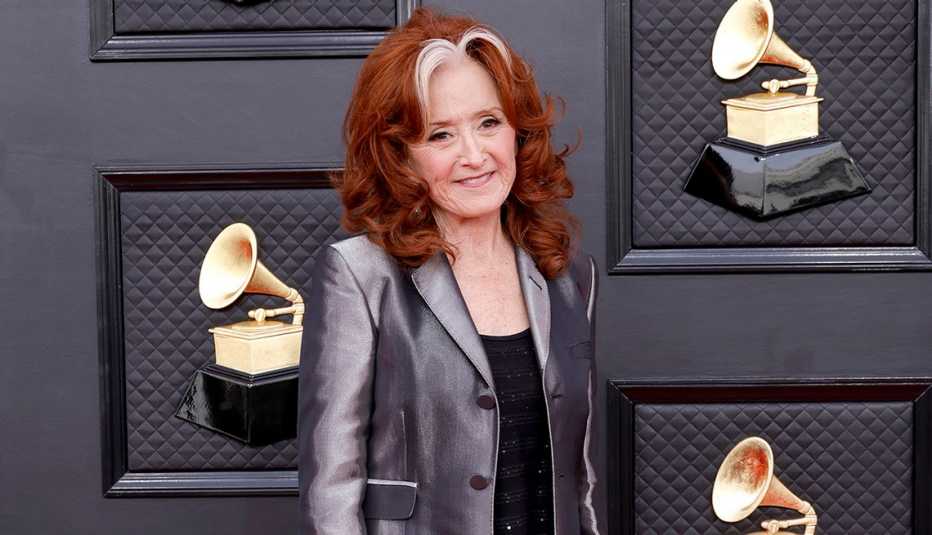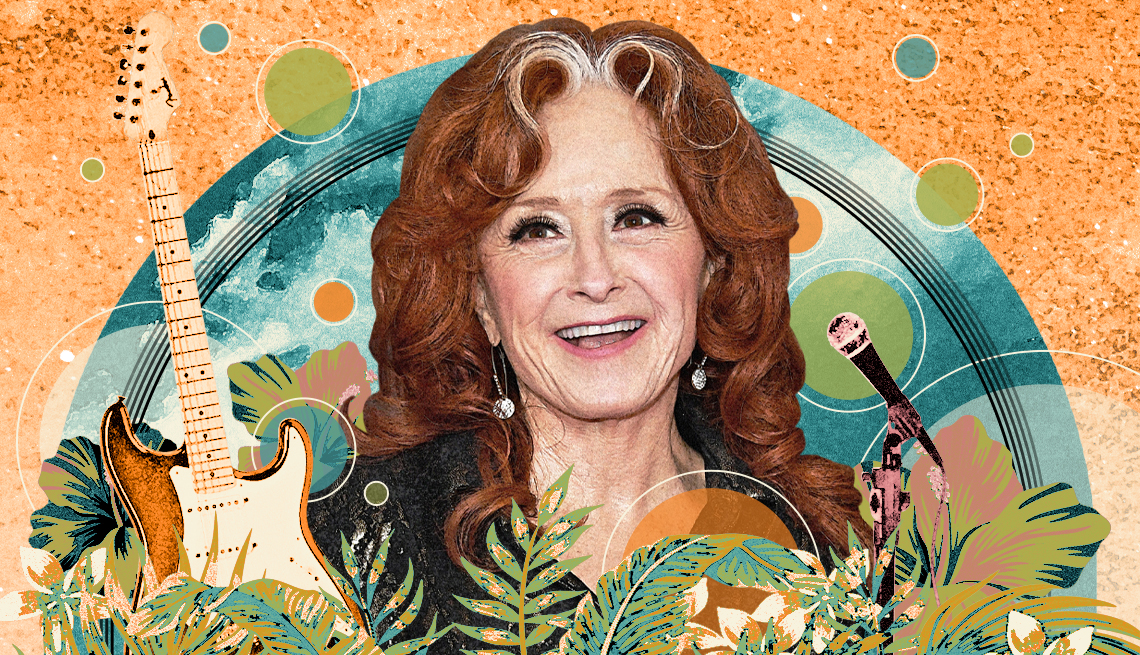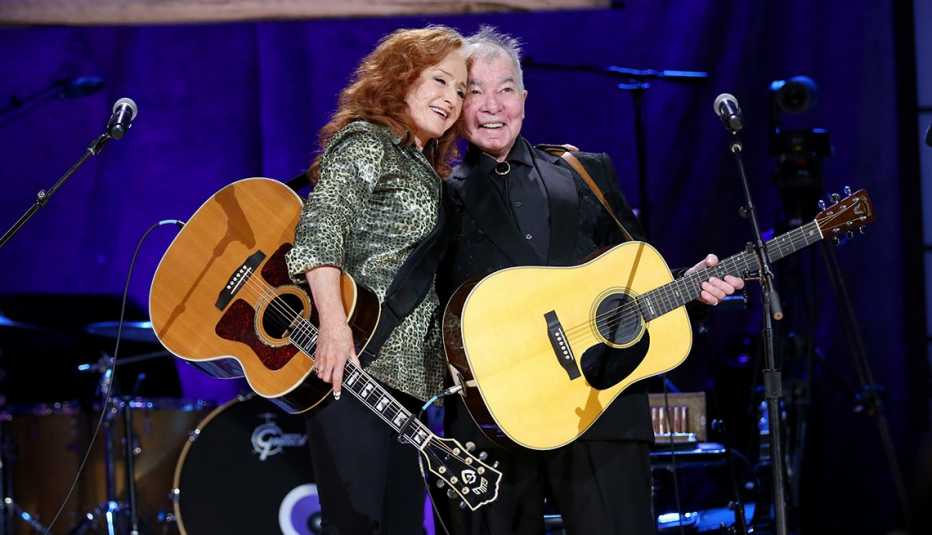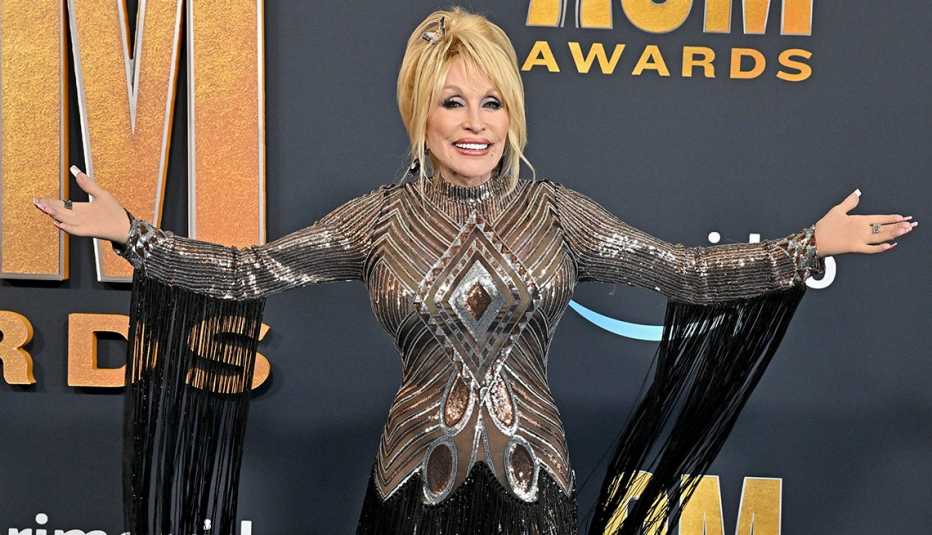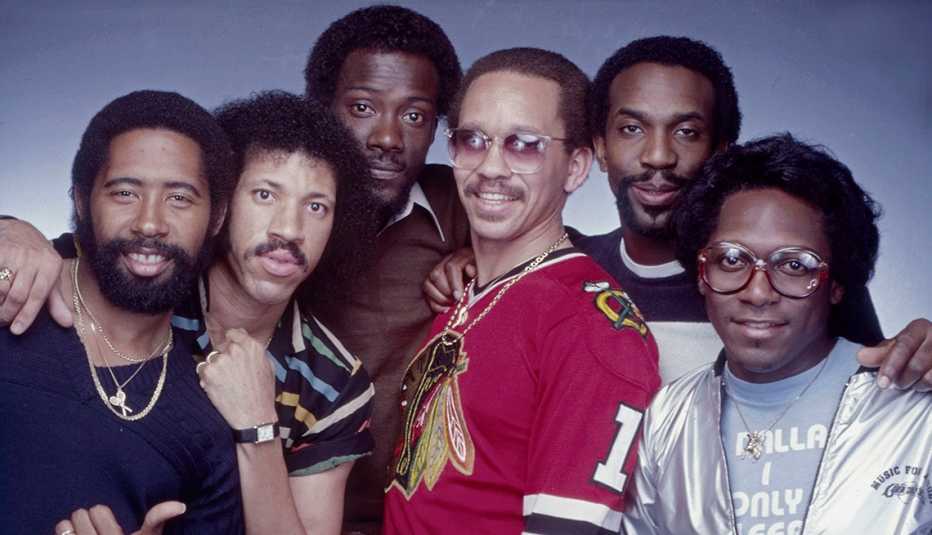Why do you think you’ve lasted so long?
My dad [the Broadway musical star John Raitt] told me, “Treat every show like it’s opening night, and they’ll come back and see you next time.” I earned my audience. I think if you’re just doing it to pay the bills, people are going to sense that. I’m lasting this long because fans know I mean it.
On the new album, you make it clearer than ever what you mean by writing more songs than usual. Why do you think more songs came to you this time?
I just had more ideas. And I wanted to write about what I’ve been through in the last couple of years, with losing so many people.
Bonnie Raitt (left) and John Prine perform together onstage during the 2019 Americana Honors & Awards at Ryman Auditorium on September 11, 2019 in Nashville, Tennessee.
Terry Wyatt/Getty Images for Americana Music Association
One friend you lost was John Prine, to COVID. You’ve been performing his song “Angel From Montgomery” on every tour since you recorded it back in 1974, making it the longest-lasting song of your live career. Why has that song proven so enduring for you?
It’s a masterpiece. It’s such an incredible invocation of what it’s like to be in a marriage that’s not feeding you. When I was 23 and first started singing it, I was a different woman. It was the beginning of the feminist movement, and I had no intention of getting married or having kids. But I remember thinking later that I would never stay in a marriage that felt dead or numb.
In fact, you never have married and you’ve also chosen not to have children. Why was not having kids the right choice for you?
I was never called to it. And when I had the opportunity to be a musician for a living, I felt there wasn’t going to be enough income to have children. To take it seriously, I’d have to come off the road. And I didn’t want to have to depend on anybody in a marriage to pay my bills. So I made the choice to be a career woman and stay on the road. And I really like the lifestyle.
It’s rare to like a lifestyle that involves running from city to city for decades. Robbie Robertson once famously said “The road will kill you.”
If you don’t like traveling and being on the road, you probably should not take this on. I’ve always loved it! I love waking up in a different city. It’s not a drain for me. I actually thrive on it. Probably the biggest challenge is to get enough sleep. But I stay steady with my yoga practice and eating healthy.
In that vein, you wrote a song on the new album, “Waiting for You to Blow,” about the fear of making a particularly bad health choice — to potentially lose your sobriety. But you’ve been sober for over 30 years. Why write that song now?
When you’re sober for a while, and you’re mature, you do miss the carefree feeling when you could either party harder or fall in love more magnificently or just when things were simpler. “Waiting for You to Blow” was something I wanted to write for a while — not to do with substance abuse but with the way the little devil on your shoulder tells you to make rationalizations or to procrastinate or to overstep the limits of your diet or your exercise program. It was fun to write about something that thorny.
Two other songs you wrote for the album were based on true events. “Down the Hall” was inspired by a New York Times story about a prison hospice program. And the title track, “Just Like That,” came from a local news report about how an organ transplant connected two families. They’re both very uplifting stories. Was that the draw for you?
At this point in my life, when I see stories of people sacrificing themselves for others, that moves me. I was raised with those values. Since the last two and a half years wreaked havoc on every bit of normalcy and comfort that we have, it was even more important to remind people of the goodness of the human spirit. That’s what gets you through.
Jim Farber is a contributing writer who was the New York Daily News music critic for 25 years. He writes for AARP, The New York Times and The Guardian, and twice won the ASCAP Foundation Deems Taylor Award for America’s best music writing.

